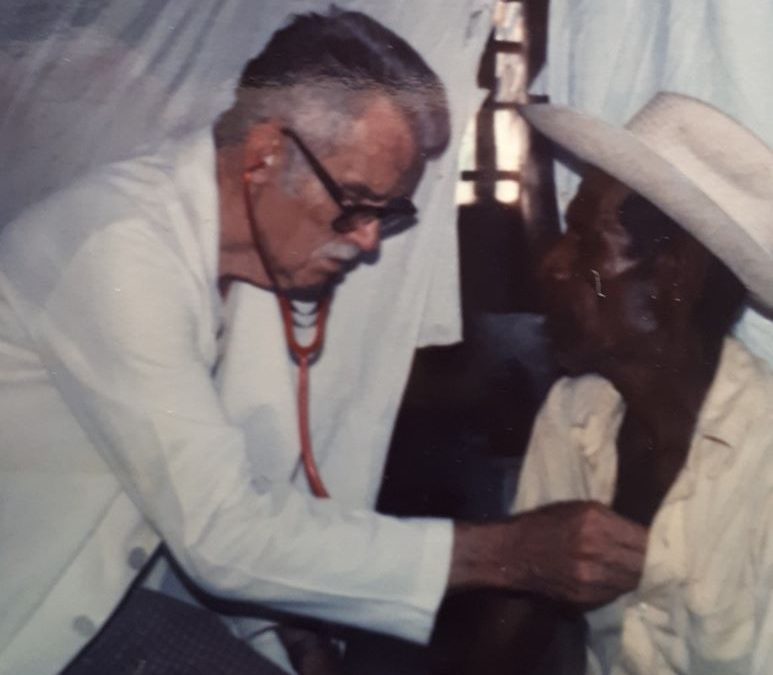My Father with a Patient
It’s easy for me to celebrate the successes of those around me when things are going well in my own life. Like when I recently received a call from friends who had just moved into their dream home in San Antonio. I looked around our own comfortable townhome, built as though it was custom designed for us. Perfect. So happy for you.
But it’s not so easy for me to delight in someone else’s success story when things aren’t going as well for me. Instead of joy, what may bubble to the surface is that nasty emotion, one of the seven deadly sins, envy.
Envy
Envy consists of the two-pronged poison of wanting what someone else has and vilifying the other for having it.
Envy shows up fifty-six times in the Bible, where it is described as the root of much of the evil in the world. Do you remember why Cain killed Abel? But it’s not just God-fearing people who caution us about its dangers. Even the atheist Ayn Rand, author of the best-selling novels The Fountainhead and Atlas Shrugged, wrote about envy as evil and destructive.
I know what envy feels like and I’m not proud of it.
As I describe in my memoir Nothing Bad Between Us, when I was a kid, I allowed envy to stir up deep and ugly storms that “raged in my belly.” I longed for the time and attention of my father, but he was consumed with his precious work that took him from me. Short version? I was envious of my dad’s God-driven service to make the world a better place for the poorest of the poor.
Here’s a brief excerpt from my book:
“As far back as I can remember there was that sort of paradoxical tension between my dad and me. On one hand, I longed to be close to him and to emulate him and on the other, I defied him and wanted to not be at all like him. I understood my father and his leprosy work and the whole Mennonite tribe to be so right, so correct and so respected in the world that I desperately wanted to be a part of it. At the same time, I felt a powerful hostility toward Dad and all the righteousness that I thought he represented… The tensions raged in my belly during those early years on the leprosy station. Between knowing that the leprosy work, God’s work, was all-important and wishing someone would destroy it.”
I imagine we’ve all felt some level of envy at one time or another – denigrating those who have what we want and maybe think we deserve. Maybe it’s not as egregious as my wish that my father quit saving lives. Maybe it’s just the happy family photo on Facebook or the big new fancy house down the block.
Overcoming Envy
The important question, of course, is how to overcome the negative feelings and begin to experience joy for another’s success, even when we’re suffering. In my early life, how to overcome my envy of the attention my dad gave to all those poor deformed leprosy patients, and to experience joy about his tremendous successes and their improved lives.
I will begin with what I know for sure does not work, having unsuccessfully tried it: Attempting to suppress the envious poison only gives it more power over me. It feels horrible. And suppressing those feelings only brings more pain into my life.
Once I am able to acknowledge my negative feelings about someone else’s success with a healthy dose of both brutal honesty and self-compassion, I’m much more likely to refocus on the positive side of my situation. And once I focus there, I’m half-way home.
So today, I invite you to join me in 1) mindfully acknowledging any poisonous grudges lurking beneath the surface of my consciousness, 2) refocusing on the many blessings in my life, and 3) finding true joy in another’s good fortune.


Great questions that I struggled with, particularly in my younger years. Being far more at peace with what I have accomplished as well as recognizing the connectedness among all living things have certainly helped.